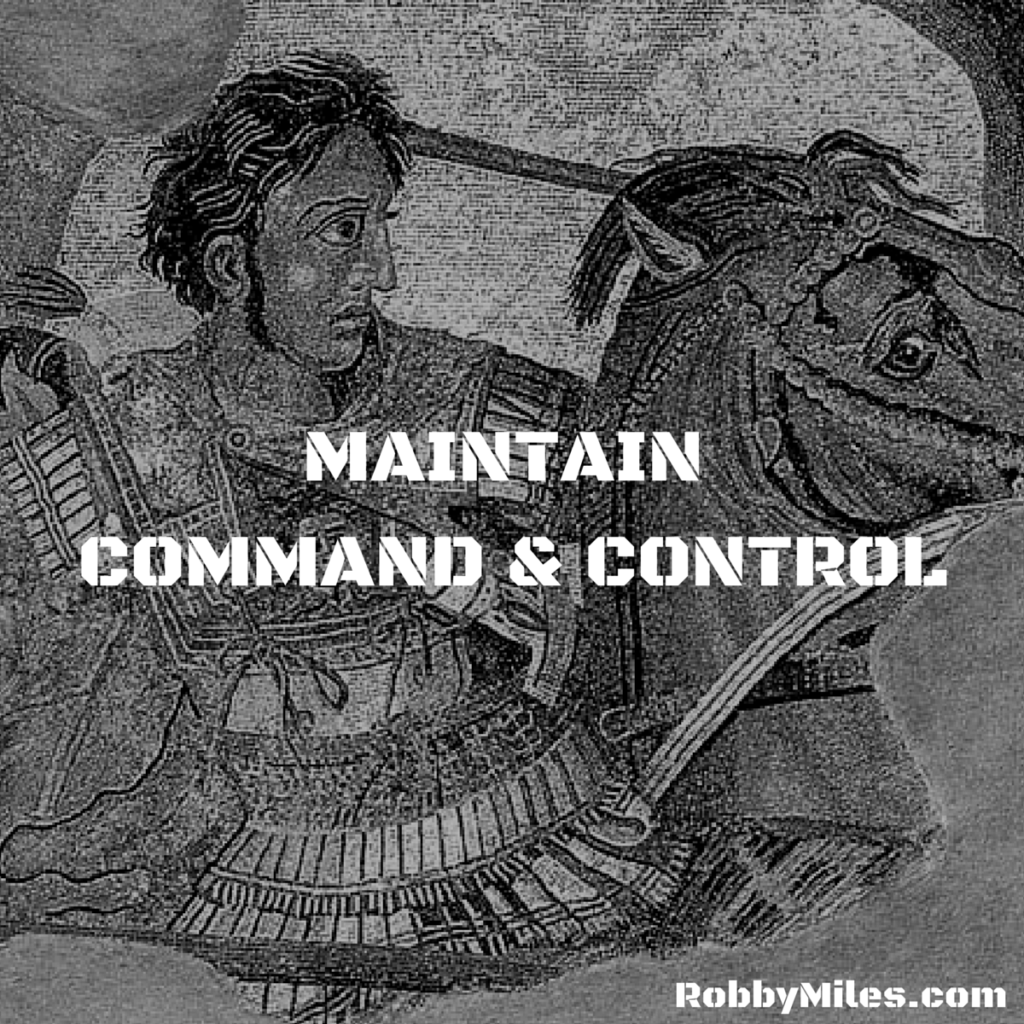When was the last time you lost control of a situation and it cost you severely? Has poor communication or planning led you to say the wrong words when talking with your wife or kids?
Today, in this final installment of the series 5 Soldier Tested Strategies for Success, I’m going to share how confirming two key processes can help you maintain command and control in your family missions.
1) “Succession of Command”
Every military operation has a clearly defined leader. The leader is responsible for the success or failure of the mission. The company commander fills this role in company operations and is advised and assisted by the First Sergeant. But, what happens if the leader is taken out of action? Thanks for asking. Here is the quick answer: there is always a clear line of succession.
I demonstrate the importance of successsion of command in my history classes by telling the story of Alexander the Great.
He was undefeated in battle and conquered the known world by the age of thirty years. Two years later he died of fever. For everything he accomplished (spreading greek culture to the east, establishing the Library of Alexandria, military tactics, etc.), his empire was divided after his death. He had no legitimate heir. When asked who would succeed him he said, “the strongest.” Rivalry between his generals led to division, civil war, and the fall of the empire.
It’s easy for families to have clear succession of command. The grown-ups are in charge, not the kids. In my house, I bear the responsibility of leadership just like a military commander. I may have the role of leader, but I cannot lead effectively without my wife beside me.
My wife is my adviser. She understands the kids more and knows how to look out for their interests. She knows how to handle both me and the children. She is like the First Sergeant. We are a command TEAM. The family doesn’t work unless we are on the same page.
Determine who responsible in different situations? Who will carry the torch if the leader is absent or unable to fulfil their duties?
2) Signals
Developing clear and uniform signals helps different military units communicate in the fog of war. Number combinations and secret passphrases let us know if we are talking to friendlies or enemies. All signals are set and memorized prior to missions.
Try this family mission: Use key words and language to signal changes. For example, every night at 7:45 I tell my kids the time. It signals them to know bedtime is approaching.
Signals have been important when my wife and I have to play good-cop/bad-cop with the kids. Partners can also use signals (looks, hand motions, etc.) to communicate discretely in situations where they cannot talk to each other because the kids are in the room…
Planning and communication are key to successfully completing your mission.
I hope you have enjoyed this series. Click here if you missed any of the 5 strategies.
[reminder]What one way can you implement succession of command or signals to complete your mission?[/reminder]

